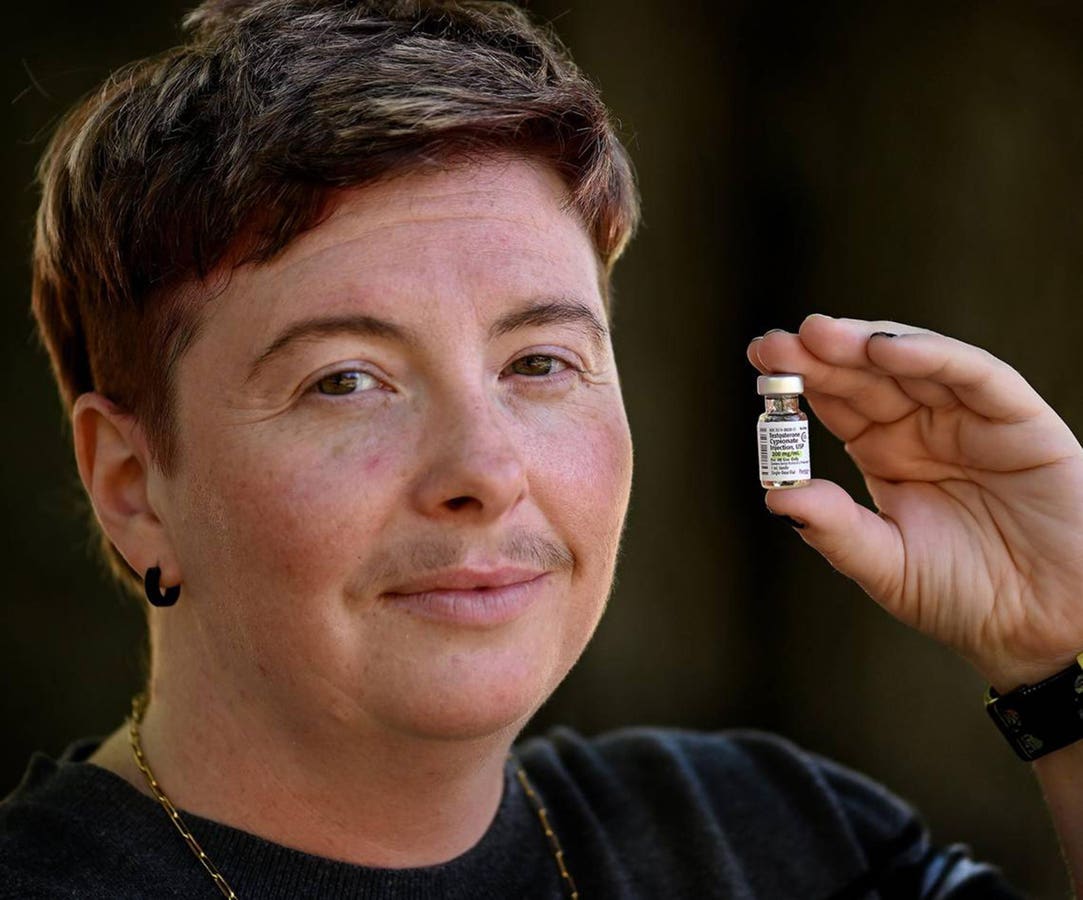The Food and Drug Administration may consider approval of the cross-sex hormone estradiol for gender-affirming care for adults and minors based on an observational study and not a randomized controlled clinical trial with placebo.
This was revealed as part of feedback the FDA provided on a research proposal submitted by the non-profit Research Institute for Gender Therapeutics. RIGT is hoping to pursue a phase 3 trial in 2025 for the hormone estradiol to treat “trans and gender-diverse” individuals.
The non-profit pharmaceutical company’s original proposal was a double-blind RCT study with placebo for adults only. Surprisingly, FDA suggested widening the study’s population to include adolescents as young as 13 years old, including those who have taken puberty blockers.
RIGT’s estradiol research program is its first, but the group plans to seek FDA approval for testosterone in gender-affirming care as well. And after receiving the FDA’s feedback to include adolescents in the estradiol study, it intends to pursue approval for puberty blockers at some point in the future.
The medicines most frequently used as puberty blockers are gonadotropin-releasing hormone analogues, while cross-sex hormones include estrogen (often referred to as estradiol), testosterone and anti-androgen preparations. Currently, such hormones may be prescribed to patients off-label.
Initially, RIGT proposed a Phase 3 trial that would randomly assign participants to either a group that receives the treatment being tested or a control group that doesn’t. Such RCT studies are considered the gold standard of medical research. But they may be impractical or unethical to carry out in certain instances. The FDA specifically noted in its feedback that the study should not include placebo treatment. It would be difficult to design such an investigation with a placebo arm because it would likely be obvious to both the patient and the doctor who had received the treatment. This is because people on estrogen usually experience breast development and less hair growth, among other physical changes.
Additionally, some experts on gender-affirming care assert that it’s unethical to attempt RCTs with cross-sex hormones, as such trials would effectively withhold “proven” beneficial care from subjects. In this context, they suggest there is a “robust body of evidence” that the treatment can prevent serious harm to patients, particularly with respect to mental health.
There is some evidence that in the short-term gender-affirming care can yield improvement in mental health outcomes in minors.
And, according to a study published earlier this year in the New England Journal of Medicine, trans and non-binary teenagers who receive cross-sex hormones experience “less depression and anxiety” and “more satisfaction with life” than before treatment.
But here’s where it gets tricky. What RIGT and U.S. advocates for trans care in minors are suggesting presumes that the evidence cited is of high enough quality that there’s settled science around the issue. Yet this is opposed to what a growing number of European clinicians and public health authorities are saying. Namely, they posit that there isn’t sufficient evidence to justify non-experimental or routine use of trans care interventions such as cross-sex hormones, puberty blockers and surgery in certain age groups.
A series of recent Europe-based systematic reviews of evidence for the benefits and risks of puberty blockers and cross-sex hormones have demonstrated a low level of certainty regarding benefits. In particular, longitudinal data collected and analyzed by public health authorities in Finland, Sweden, the Netherlands and England have concluded that the risk-benefit ratio of youth gender transition ranges from “unknown to unfavorable.”
These results hinge on application of principles of evidence-based medicine. According to one of its founders, David Sackett, evidence-based medicine is the “conscientious, explicit and judicious use of current best evidence in making decisions about the care of individual patients.” Here, systematic reviews of evidence assign to each peer-reviewed publication and clinical practice guideline a ranking of the quality of evidence as “high,” “moderate,” “low” or “very low.” This is typically done using the GRADE system, referring to Grading of Recommendations, Assessment, Development and Evaluations.
The expert opinion of physicians, for example, even if based on extensive clinical experience, yields the lowest quality evidence. This implies the least reliable data to inform policy. Observational studies, which draw inferences from a sample cohort of patients to a population where the independent variable is not under the control of researchers because of ethical or logistical constraints, rank modestly better. RCTs with placebo are at the very top of the pyramid in terms of quality of evidence. Systematic reviews of evidence examine published studies and evaluate the quality of the data, rigor of the statistical analyses, methodological strengths and weaknesses and whether there is follow-up data.
According to European clinicians and health authorities, the systematic data reviews reveal gaps in the evidence base for sex modification treatments in minors, and a concomitant need for more research to be carried out.
As a result, such interventions are being confined to research settings with age limitations, such as 16 for cross-sex hormones and 18 for surgery.
Six Western European countries—Finland, Sweden, France, Denmark, Norway and the U.K.—which once led the way on treating gender incongruent patients with puberty blockers and hormones are now reversing course, arguing that the science underlying these treatments is not settled and benefits to patients are unclear. These countries aren’t banning pharmaceutical interventions altogether, but are severely limiting their use.
Increasingly, public health officials and doctors in these countries maintain that for some young people these interventions may do more harm than good. This marked shift in policy has meant that in Denmark, for example, most youth referred to the centralized gender clinic no longer get a prescription for puberty blockers, hormones or surgery. Rather, they receive therapeutic counseling and other support services.
It’s the systematic evidence reviews, and not politics, that are causing a shift from what is frequently termed “gender-affirmative care,” which prioritizes access to medical interventions, to a more conservative approach that addresses possible psychiatric comorbidities and explores the developmental origins as well as other explanations of the trans identity being adopted by youth patients.
An investigative report posted by the British Medical Journal earlier this year concluded that although pediatric gender medicine in the U.S. is “consensus-based,” it is not “evidence-based.” This contradicts what RIGT and other groups in the U.S. are stating regarding there being “robust evidence” with respect to the benefits of gender-affirming care for minors.
There may be still be a way to come up with a constructive approach for a possible Phase 3 trial to examine the safety and efficacy of estradiol to treat trans and gender-diverse individuals. The sponsor could study its use in comparison with “watchful waiting” and “exploratory talk therapy.” In this context, researchers could critically evaluate some of the concerns their European counterparts are voicing about potential adverse events and long-term impacts of possible regret, particularly when dealing with minors.
Read the full article here





